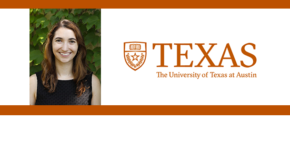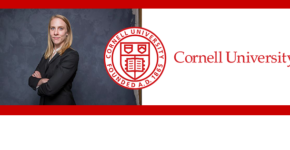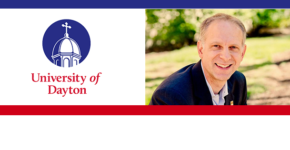Tag: psychology
-

Stacey Wood, Scripps College – Our Approach to Fraud Needs to Change
On Scripps College Week: Our approach to dealing with fraud needs an overhaul. Stacey Wood, Molly Mason Jones professor of psychology, puts together the evidence to show us why. Stacey Wood, Ph.D. is a clinical neuropsychologist and the Molly Mason Jones Professor of Psychology at Scripps College in Claremont, CA. She received a B.A. in…
-

Annabelle Roberts, University of Texas at Austin – Why We Hate to Wait
We’re all tired of waiting. Annabelle Roberts, assistant professor of marketing at the McCombs School of Business at the University of Texas at Austin, says we’re most impatient right before we get what we want. Annabelle Roberts is an assistant professor of marketing at the University of Texas at Austin, McCombs School of Business. Prior…
-

Eranda Jayawickreme, Wake Forest University – How Can You Become a Good Thinker?
How can you become a good thinker? Eranda Jayawickreme, Harold W. Tribble professor of psychology at Wake Forest University, uses some brainpower to find out. Eranda Jayawickreme is the Harold W. Tribble Professor of Psychology and Senior Research Fellow at the Program for Leadership and Character at Wake Forest University. He is a personality psychologist…
-

Laurence Hurst, University of Bath – Variety of Attitudes to Science
Why is there such a large variety of attitudes to even well-evidenced science? Laurence Hurst, professor of evolutionary genetics at the University of Bath, explores the differences between those who trust in science and those who do not. Since 1997 Laurence Hurst has been the Professor of Evolutionary Genetics at The University of Bath. Prior…
-

Garriy Shteynberg, University of Tennessee-Knoxville – Sharing Attention Across Societal Divides
Shared attention can be key to bridging the gaps between us in society. Garriy Shteynberg, associate professor of psychology at the University of Tennessee Knoxville, explores. Garriy Shteynberg is an associate professor of psychology at the University of Tennessee, Knoxville. Garriy received his PhD in psychology from the University of Maryland, and a Master’s in…
-

Kaitlin Woolley, Cornell University – Highlighting Short-Term Costs Reduces Unhealthy Behavior
How do we stop our unhealthy behaviors? Kaitlin Woolley, associate professor of marketing at the SC Johnson College of business at Cornell University, looks short-term to help us out. Kaitlin Woolley is an Associate Professor of Marketing at the SC Johnson College of Business at Cornell University. She studies the psychological processes underlying consumer motivation…
-

Alexandra Brozowski, Michigan State University – How Asexuals Navigate Romantic Relationships
There are still groups of individuals who feel left out and under researched. Alexandra Brozowski, research associate at Michigan State University, delves into one such group. Alexandra is a 2019 graduate of Michigan State University’s Honors College with a Bachelor of Science focused on Psychology. She has had several diverse academic and clinical experiences in…
-

Robert Romano, St. John’s University – Student-Athlete Mental Health
College athletes face lots of pressures to compete. Robert Romano, assistant professor in the division of sports management at St. John’s University, details the importance of looking after their mental health. Professor Robert J. Romano is an Assistant Professor in the Division of Sport Management at St. John’s University. After attending Springfield College, Professor Romano…
-

Christian Kiewitz, University of Dayton – Who is Your Co-Worker?
What do you call the people you work with? Christian Kiewitz, professor of management at the University of Dayton, says there’s more to a name than you might think. Christian Kiewitz is a Professor of Management at the University of Dayton, Ohio. His research interests center around problematic behaviors in the workplace, such as micromanagement,…

